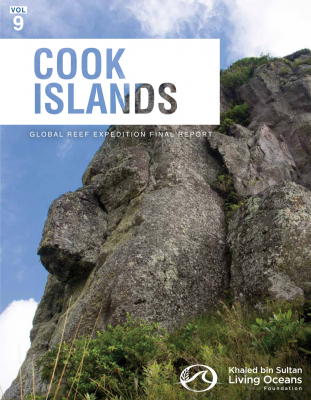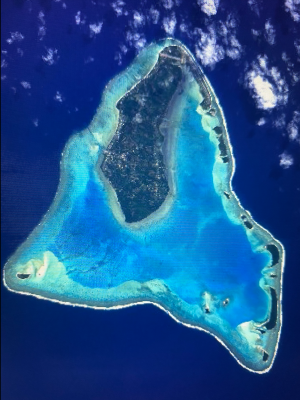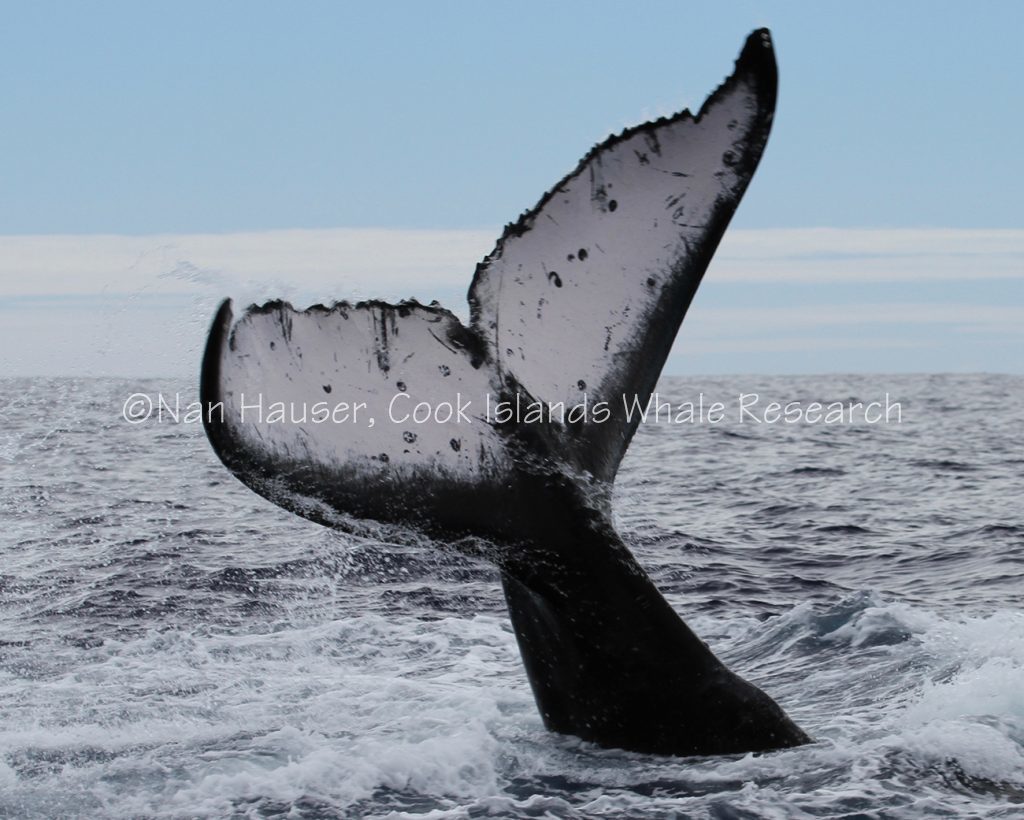 Learn about the health of our reefs
Learn about the health of our reefs
We are appreciative to have an ongoing professional and personal relationship with Living Oceans Foundation and are pleased to share their impressive report Global Reef Expedition: Cook Islands Final Report. It was very professionally done and we are fortunate to have these data. Nan received her Lifetime Achievement Award in 2014 along with His Royal Highness Prince Khaled bin Sultan of Saudi Arabia, the chairman and founder of Living Oceans Foundation, as well as Dr. Birute Galdikas, Dr. Sylvia Earle and Dr. Patricia C. Wright.
The status of the reefs is especially significant to us, as the reefs are part of an important habitat to humpback whales as they pass through the Cook Islands. Fringing reefs closely surround the island of Rarotonga, and the seafloor drops off dramatically on the outside of the reef, allowing the whales to swim right along the reefs. Rarotonga and the other small islands serve as landmarks for the humpbacks during their migration through Oceania, and the whales use the reefs in a number of different ways.
 Many female humpbacks give birth nearby the reefs, which provide a safe place away from predators such as killer whales. The mothers then use the reefs for teaching their calves how to navigate. Mothers and calves can swim farther offshore but return the reef, which they use as a home base.
Many female humpbacks give birth nearby the reefs, which provide a safe place away from predators such as killer whales. The mothers then use the reefs for teaching their calves how to navigate. Mothers and calves can swim farther offshore but return the reef, which they use as a home base.
Once a yearling parts ways with its mother, the reefs again can provide that whale with a safe space. Finding themselves to fend on their own, these juveniles can locate other young whales along the reef in order to feel safer.
If an animal is sick, newborn, old, injured, disoriented or affected by sonar, it uses the reef to hold its body up out of the water and avoid drowning.
Many whales use the reefs as a place to congregate and socialize with others, especially for the purpose of mating. The reefs can actually amplify sound, which is useful to males searching for a mate. The males use the reef as an amphitheater, where their songs bounce off the reefs and can be heard at great distances, letting the females know where they are.
Because these reefs are such an integral part of the marine ecosystem and the humpback whales’ habitat, their health is correspondingly significant. Thank you, Living Oceans Foundation, for monitoring the status of the Cook Islands reefs, which are so incredibly important to these whales!



